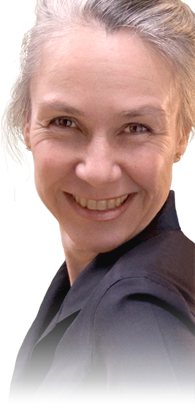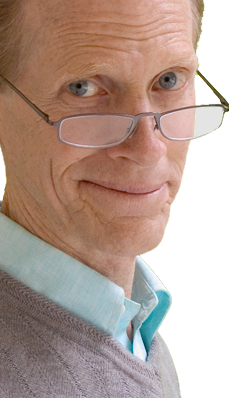


Acupuncture. Since New York Times correspondent James Reston first romanced the American public with tales of his exotic treatment and its impressive results during his visit to China with Richard Nixon in 1971, this word has inspired fascination, curiosity, skepticism, and fear in the hearts of the “uninitiated.” Although Oriental Medicine is widely practiced in the United States today, these reactions are still common in many parts of the country, and acupuncture continues to capture the public’s attention and imagination when it comes to the practice of Oriental Medicine.
Acupuncture is, indeed, a very powerful tool for healing. Yet, it is neither the only, nor, necessarily, the most important modality of Oriental Medicine. In Asia, both Chinese Herbal Medicine and dietary energetics often take precedence over acupuncture in resolving health issues.
But acupuncture excels when it comes to moving qi (chee). It brings balance to the constitutution by its preeminence at manipulating the life force. Qi is sometimes described as an energy which flows through our bodies and which gives us life. From the Oriental perspective, this is a limited understanding, but for the sake of this discussion, it will suffice. When qi does not flow, or when it flows in ways that it shouldn’t, pain and illness are the result. When qi is flowing properly and the constitution is balanced, pain and disease cannot exist.
In the west, acupuncture is most commonly thought of as a treatment for pain. This perception is quite narrow, and it is important to recognize why our understanding is so impoverished. The western worldview is... well, it's simply our world view. These words are tossed about frequently these days, but they don't mean much to most people. Their implication is huge. A worldview is the filter through which all our experience, thoughts, understanding, knowledge, words, and actions pass. Everything we know is a reflection of this collective perspective. In the west, we have our filter; in the east, it's a totally different one.
(This discussion really belongs in the realm of Oriental Medicine, but because of our culture's focus on acupuncture and the misconceptions surrounding it, I've chosen to have the conversation here. So here we go...)
To avoid dragging this enormous subject to the depths to which the mind would take it, let's look at just one aspect of our concept of medicine. Conventional medicine's perspective is all about symptoms:
- "Oh, no. I feel another migraine coming on."
- "I'm not sleeping, because my shoulders hurt."
- "I'm depressed. I don't even want to leave the house."
- "My digestion is a wreck."
- "This low back pain is driving me nuts!"
- "Why can't we get pregnant?"
All of these are symptoms. They are not causes, in and of themselves. Conventional medicine attempts to suppress each of these symptoms with a different drug, probably prescribed by different specialists. That all of the above symptoms could be a result of the same cause is beyond the comprehension of conventional medicine. To entertain the notion that all of them could be reversed by correcting the cause, is a concept beneath our collective radar. It's not part of our world view.
And I'm not just talking about MDs or other health care professionals — I'm talking about all of us. We are all influenced by this mechanistic viewpoint. It takes a long time to dig oneself out of the worldview in which we were raised.
So what does this have to do with acupuncture? Simply this: if you put a modality, such as acupuncture, in the hands of a health care professional who sees nothing but symptoms, the effectiveness of the modality is suddenly, severely restricted. The thinking looks somewhat like this...
- "Oh, I'll use this point. It's supposed to be good for headaches."
- "Shoulder pain? Well, I know lots of shoulder points. I'll just needle some of those. "
- "Depression? Sounds like you need an anti-depressant."
- "Well, acupuncture only works for pain, you know..."
- "Let me just put in a few more needles."
- "I think you need to see your gynecologist about that... "
Used in this way, acupuncture is nothing more than a novel addition to the western practitioner's paint-by-number pallet.
Used within the context in which it was born — Oriental Medicine — acupuncture effectively treats all diseases, physical, mental, emotional, and even spiritual disorders, as well as pain.
The reason acupuncture is viewed in the west as simply a pain treatment, is that westerners are doing the viewing, and, unfortunately, sometimes wielding the needles, as in the case of MDs, chiropractors, or others who have received a few weekends of training in "where to put needles for what symptoms." This is a disservice to the public on more than one level.
- The patient of such a physician experiences mediocre results. Would you prefer to receive 30% of a medicine's effectiveness, or 100%?
- The reputation of acupuncture suffers. "I tried acupuncture, and it didn't work."
- Our understanding of a brilliant medical system remains shrouded in darkness.
- Everyone loses.
More importantly, there can be problems. It is possible to cause actual harm in this scenario, because the unqualified practitioner has no idea what the energetic implications of his/her treatment will be — they have no idea what they are doing in terms of the real medicine. But there will be an energetic effect. It may be beneficial, it may be detrimental. Neither the untrained practitioner nor the client know what that outcome will be.
Avoid this situation. Make sure that the person putting needles in you is, at least, nationally certified in Oriental Medicine. Get the real thing.
Acupuncture, to most Americans, describes the use of thin, disposable needles inserted into strategic locations on the body which stimulate a vast number of responses from qi. In this way the skilled practitioner of Oriental Medicine can manipulate qi to restore balance to the individual’s constitution. Needles are a very effective way to accomplish this.
Although skillfully placed acupuncture needles are painless, they are not the only way to practice acupuncture. Qi may be redirected without their use. In addition to needles, some of the methods I use to manipulate qi include:
- Sound vibration, through the use of specially calibrated tuning forks.
- Essential oils, applied to acupuncture sites.
- Heat, in various forms, applied directly or indirectly to points.
- Micro-current stimulation, through needles, probes, pads, or ear-clips.
- Laser beams, focused on acupuncture points or along meridians, scars, etc.
Each of these is a powerful method of accessing and manipulating qi. Each has its own special applications, advantages, and disadvantages. And sometimes these modalities may be combined for an even more potent effect.
For example, essential oils may be applied to acupuncture points and stimulated by special, glass-tipped tuning forks. This is a remarkably powerful approach, which is capable of accessing very deep levels of the constitution. Through the “law of signatures,” essential oils (which are the “essence” of plants) access the essence, or deepest level, of one’s constitution. Tuning forks have potent effects of their own, and, when appropriately used, their vibration communicates these effects, along with those of the essential oils, to yuan qi, the deepest level of qi in the body.
The methods of manipulating qi are myriad and fascinating. More important than the methods used, however, are the intentions, motivations, desires, and perspectives of both the patient and the physician.
For those seeking deeper insights into qi, consider that qi is also our relationship with the world. One can easily see, then, how the metaphor of "qi not flowing" vividly illustrates the concept that all disease is a reflection of our inability (or unwillingness) to adapt to changing conditions in our lives.
This site is best viewed in the current version of Safari.